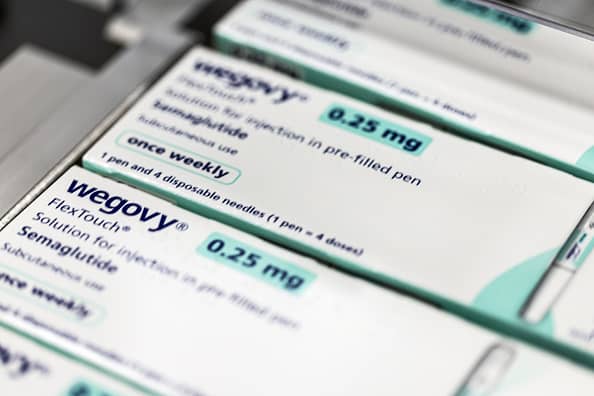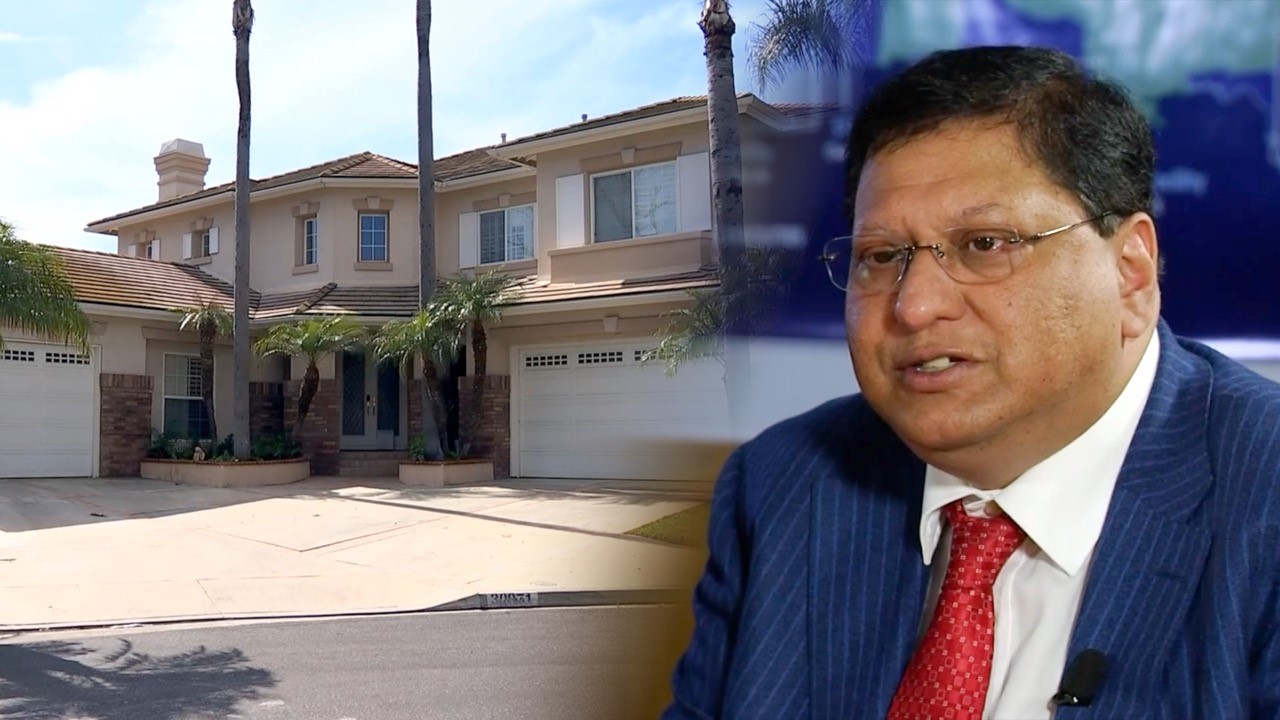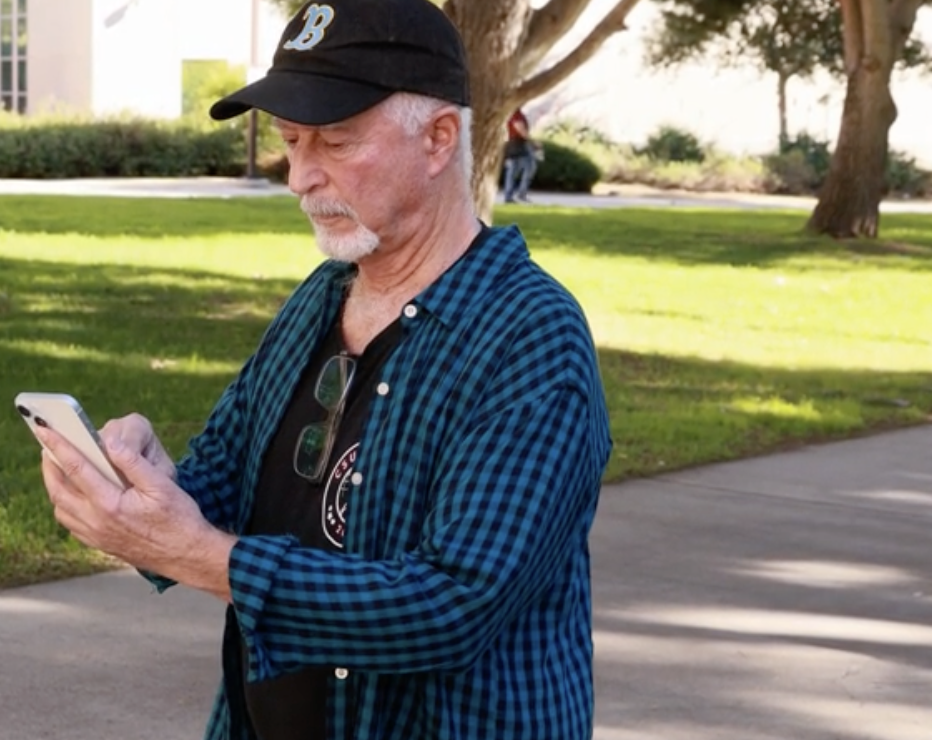Andrea Morris lived an active life, working as a nurse, running marathons and raising her three children as a single mom.
But all that changed May 14, 2020 when Morris arrived to work at the City of Hope cancer infusion center in Upland.
Court records show she told her supervisor, also a nurse, that she didn’t feel well and worried she might have Covid-19, a constant concern in those early months of the global pandemic.
“She was really worried about her kids and getting it from a patient or another medical professional and then giving it to one of her children,” explained Pam Bertino, Morris’ sister. “A lot of anxiety and stress, just all the time.”
Get top local stories in Southern California delivered to you every morning. >Sign up for NBC LA's News Headlines newsletter.
The symptoms that Morris worried were Covid-related turned out to be the first signs of sudden cardiac arrest.
Nursing supervisor Karen Serna recorded Morris’ medical emergency on her cellphone as she called 911. Both recordings were shared with the I-Team by Morris' attorney .
“I can’t get a blood pressure on her. She is completely moaning right now. It looks like she is having a seizure,” Serna told the 911 operator.
It’s really scary to think that your boss would take a videotape of you, essentially going into cardiac arrest and having agonal breathing, instead of reacting and giving CPR
Pam Bertino, Andrea Morris’ sister
Serna mistakenly and repeatedly referred to what was happening as a seizure, but she did not take a blood pressure reading, even manually.
“She’s not moving at all,” Serna told 911. The operator asked, “She’s not breathing?” Serna replied, "No."
In an ongoing workers’ compensation trial, Serna was asked by Morris’ attorney, “Once you couldn’t get a reading of her blood pressure, it’s a fact you did not start CPR.”
“Correct,” said Serna.
"This was a missed opportunity to save her, wasn’t it?” the attorney asked.
Serna responded, “I don't agree with that statement.”
Attorney Keith More also questioned how videotaping helped in that emergency situation, if it helped Morris with her breathing or getting oxygen to her brain. Serna said no.
“It’s really scary to think that your boss would take a videotape of you essentially going into cardiac arrest and having agonal breathing instead of reacting and giving CPR,” Bertino said.
More pointed to repeated failures to properly assess Morris and to react.
“There were six different chances she had to recognize, do something, but she did nothing,” More said.
And he said witness testimony shows it wasn’t just Morris' supervisor, Serna, who was present.
“There were two nurses, one medical assistant and two doctors. All City of Hope employees,” he said.
One of those doctors later said under oath he was not qualified to perform CPR.
“There was a defibrillator very close by, oxygen very close by and they just didn’t react,” Morris' sister said. “It’s the biggest mystery of the whole thing. She was dying, her lips turned blue and then purple.”
In court testimony, Morris’ friend and fellow nurse Alma Harris said it wasn't until she arrived on scene that Morris finally received oxygen and chest compressions, but that was more than 7 minutes after that 9-1-1 call began.
Eight months in the hospital followed. Morris' family said they were forced to sell her home and liquidate her 401k to help pay for her medical expenses. She now lives with her parents who are in their 80s. Her two sons also help with caregiving.
“There’s this woman that was an athlete, she’s lost her livelihood, she’s lost herself as she knew it,” Bertino said.
Morris now requires 24/7 care, which costs more than $200,000 a year. She is unable to take a sip of water on her own. During a break in the trial, she talked about seeing Serna’s video for the first time of her sudden cardiac arrest and her boss’ response.
“I didn’t like it,” Morris said. “I was so sad.”
Harris, who stepped in to save Morris' life, testified in trial that she felt she “couldn’t say the truth” about what happened when questioned during a deposition. She said an attorney representing the City of Hope hit her chair to silence her. Harris told the judge she thought that attorney was going to hit her.
Harris still works at City of Hope and felt nervous speaking on camera, but she told the I-Team, “all health care workers should be prepared for basic life support.”
Almost 4 years have passed since Morris’ catastrophic, near-death experience that left her quadriplegic. Her sister believes her sudden cardiac arrest was brought on by the immense stress of being a front-line worker during Covid. Prior to the pandemic, the published job description for Morris’ nursing position states “employee will work under stressful conditions.”
Her family is appalled by the denial of her workers comp claim and wants City of Hope to take responsibility for what happened.
“This happened on your watch, you know you have insurance,” said Bertino. “Please help this woman that helped your patients, that helped your business.”
The I-Team reached out to City of Hope which said, “As this is regarding pending litigation, we will not have a comment.”
The day before this story was scheduled to air, City of Hope provided this statement: "We are deeply saddened by the serious medical event Ms. Morris suffered in 2020, and our hearts go out to her and her family. The health and wellness of our employees and all those we serve is City of Hope’s top priority, and we remain committed to maintaining a safe work environment for our staff and clinical teams. We cannot comment specifically on this ongoing case."
The trial is ongoing. Because trial dates are not consecutive in workers compensation cases, it could be several months before testimony is complete. The attorneys for City of Hope have not yet called their witnesses.





